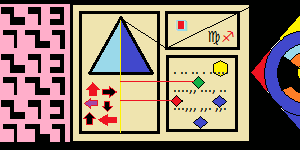2016-12-22 at 11:19 PM UTC
I built my PC some years ago and put a decent graphics card in it but I don't really play video games much. I feel like it's wasted power. Can I use it to assist my CPU's processing?
2016-12-22 at 11:34 PM UTC
Only for highly specialized applications like crypto coin mining and data processing like tensor flow, rendering fractals, etc. You
can write computer programs that specifically use GPU, but I imagine the learning curve is very steep and with not much value without a specific goal.
Tensor flow is a machine learning python library made by Google which will automatically take advantage of the GPU if you have one. It's a lot easier to get started than you think:
https://www.tensorflow.org/tutorials/mnist/beginners/ You can basically ignore the math and just know you are shaping a function/line (or many functions/lines) to represent data points.
The following users say it would be alright if the author of this
post didn't die in a fire!
2016-12-23 at 3:11 AM UTC
aldra
JIDF Controlled Opposition
mostly just raw low-level math
2016-12-23 at 5:33 AM UTC
Nope. SIMD processors (like GPUs) usually have much lower clock speeds than CPUs in the same general price range, they're fast because they're highly parallel in a very constrained way but unless the problem you're trying to solve can be expressed as a uniform transformation of variable data it won't benefit from GPU acceleration. Your computation also has to be of a certain size, GPU communication involves non-negligible transfer time so it's easy to end up in a place where you spend more time shuffling bytes back and forth between your GPU and main memory/CPU cache hierarchy than it would take to use a vector extension or just iterate. Graphics just happens to be a domain that's highly amenable to SIMD computation.
2016-12-23 at 5:48 PM UTC
-SpectraL
coward
[the spuriously bluish-lilac bushman]
Some CMOS bios settings have an option to transfer RAM on the video card to system memory. Try F1 when posting and look for the setting.


